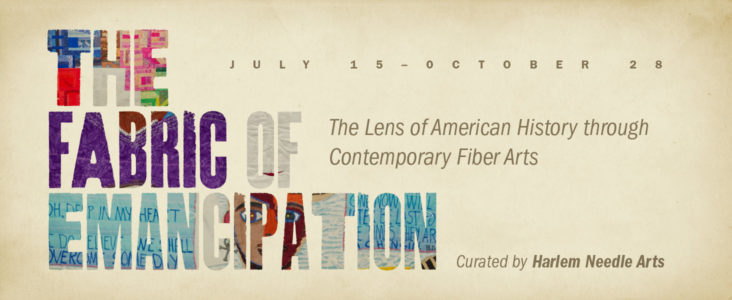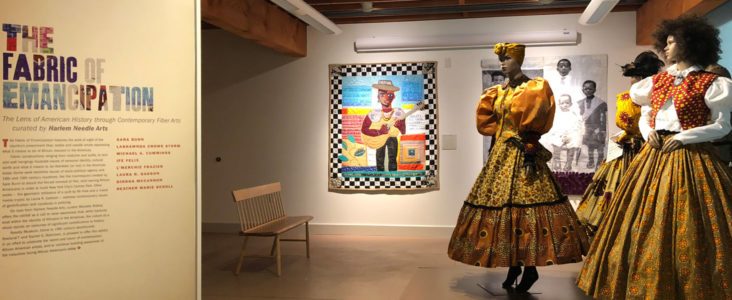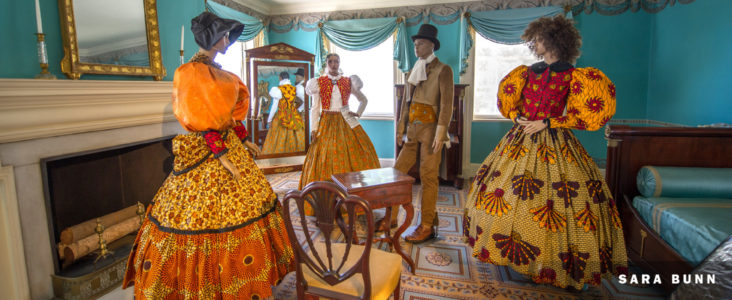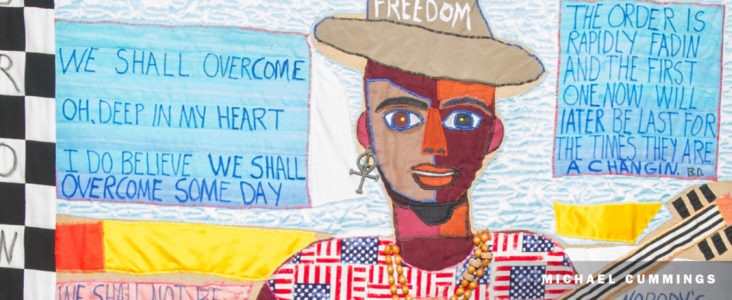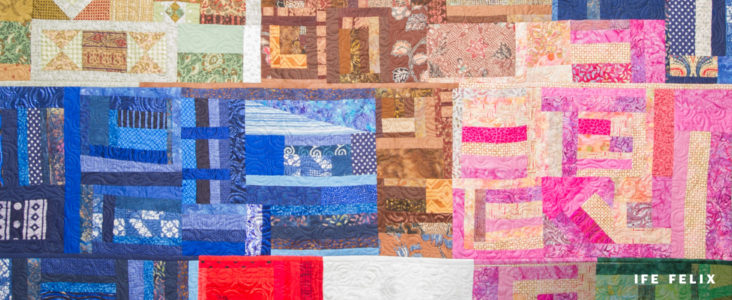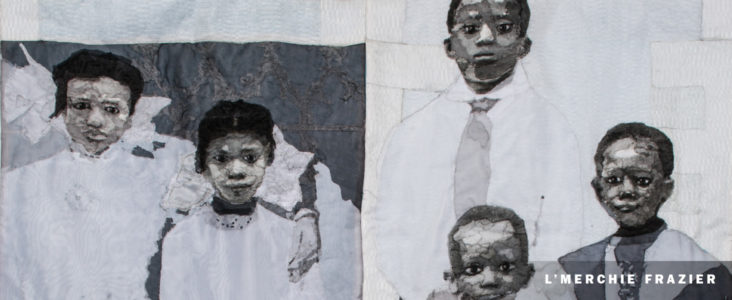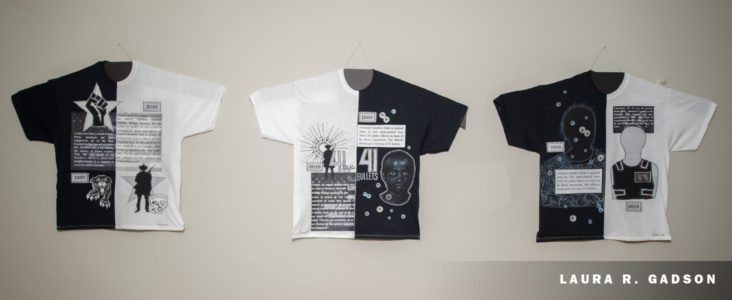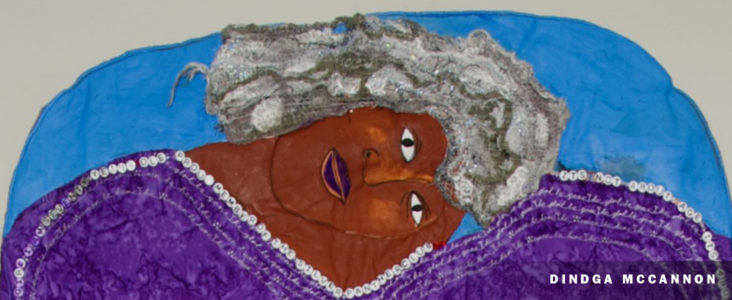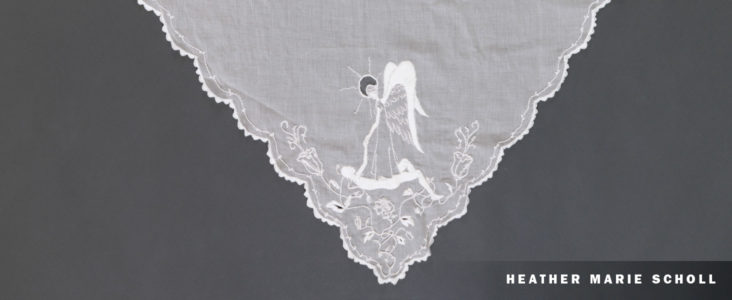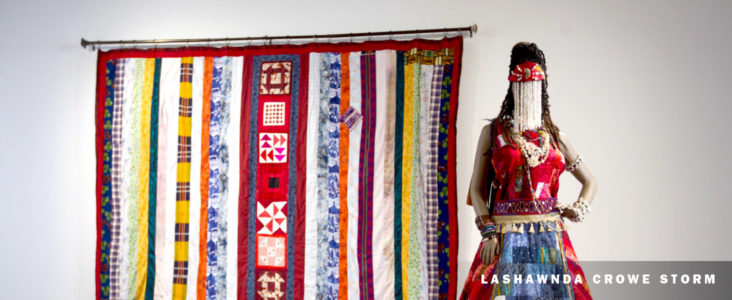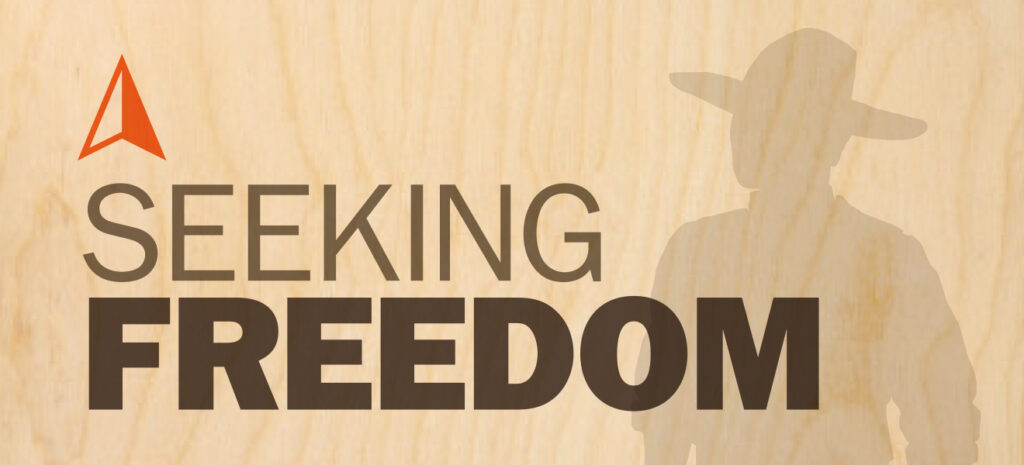The Fabric of Emancipation
 The Fabric of Emancipation: The Lens of American History through Contemporary Fiber Arts
The Fabric of Emancipation: The Lens of American History through Contemporary Fiber Arts
(2018 seasonal exhibit: July 15–October 28)
The Fabric of Emancipation features the work of eight of the country’s preeminent fiber, textile and needle artists expressing what it means to be of African descent in the Americas.
Laura R. Gadson
Fabric constructions ranging from costume and quilts, to lace and wall hangings illustrate issues of personal identity, cultural worth and what it means to be liberated (or not) in the Americas today. Some work identifies issues of socio-political agency and 18th and 19th century injustices, like the mannequins created by Sara Bunn to depict the forced removal of free, land-owning African Americans in order to build New York City’s Central Park. Other works — the geometric brilliance of a quilt by Ife Felix and a mixed media tryptic by Laura R. Gadson — address contemporary issues of gentrification and injustices in policing.
On loan from Harlem Needle Arts, curator Michelle Bishop offers the exhibit as a call to raise awareness that, while fractures exist within the identity of Africans in the Americas, the culture as a whole stands on centuries of significant contributions to history.
With this small but potent exhibition, Bishop and artists succeed in using a traditionally underestimated medium to do pressing and immediate work — as Bishop put it, “to think critically and radically about the humanity of people of color … and to create vocabulary, action and space for the viewer to evaluate their role in America.”
Rokeby Museum, home to 19th century Abolitionists Rowland T. and Rachel G. Robinson, is pleased to offer this exhibit in an effort to celebrate the talent and vision of contemporary African American artists, and to continue building awareness of the inequities facing African Americans today.
 Rokeby Museum
Rokeby Museum